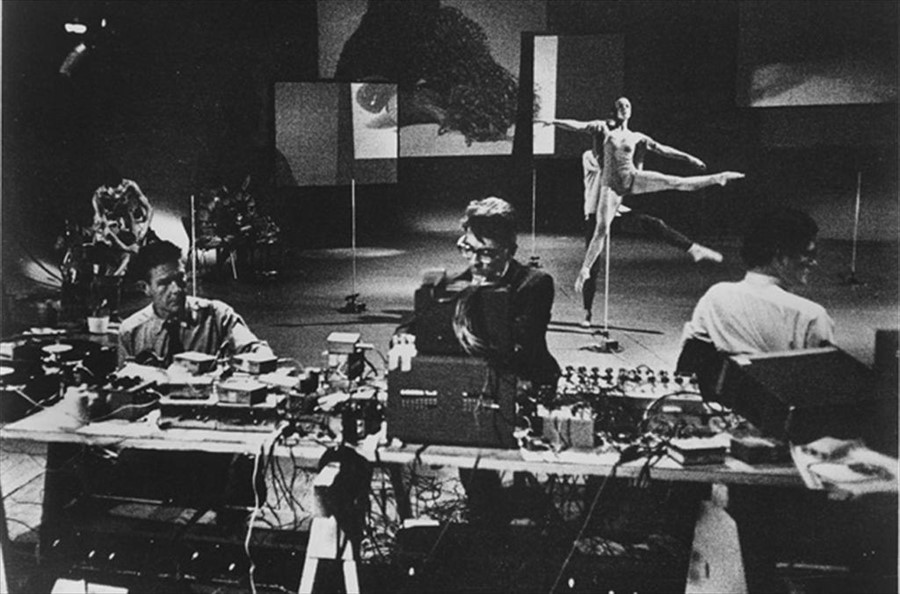AnOther's Classical, Opera & Contemporary Music columnist Sir Norman Rosenthal, picks his highlights for November including a three-day festival of American and West-European Minimalist music, pre-eminent American string quartet...
One of the great and transforming movements of our time, embracing all art forms is Minimalism. It has affected art, architecture, fashion, literature, and music, which is why a three-day festival of American and West-European Minimalist music taking place at King's Place from the 24–26 of November, is an exciting and important event. It is 'curated' by Igor Toronyi-Lalic, and features arguably the best piano duo in the world playing today, the glamorous Labèque sisters – Katia and Marielle.
The programmes start appropriately with the music of the founder of musical minimalism, Steve Reich. They include works by precursors such as Erik Satie and John Cage, and go on with works by 'classic' American and European composers as well as luminaries of avant-garde rock music, including La Monte Young, Terry Riley, the strange English Fluxus composer Cornelius Cardew, Brian Eno, Sonic Youth, Aphex Twin and Radiohead. They even include The Who, whose 60s concerts at the Roundhouse were amongst the most radical events of their era here in London. Should all be very exciting!
As regards to new music, the other exciting event, which takes place at the Linbury Theatre at the Royal Opera House on the 1, 2, 4 and 5 November, is the world premier of a new opera by the young talented British composer, Tarik O'Regan, and veteran artist, writer and composer, Tom Phillips. Heart of Darkness, based on the novel of Joseph Conrad, tells the story of obsession and brutality in the African Congo, as riverboat captain Marlow searches for a criminal ivory trader.
Tchaikovsky's Two Greatest Operas
Something I would also recommend is a beautifully coincidental opportunity to become familiar with Tchaikovsky's two greatest operas, both based on stories by Russia's national poet, Alexander Pushkin, Eugene Onegin and the Queen of Spades. A new production for the English National Opera of Eugene Onegin by Deborah Warner, tells the touching and tragic story of a poet who rejects the love of a beautiful young country girl, only later to horribly regret it.
Queen of Spades, Tchaikovsky's operatic equivalent of his famous Pathetique symphony, is at the Barbican in a new production by Opera North. It features the legendary Josephine Barstow in the role of the aged countess who holds the key to the magic three cards that will grant the hero Herman his fortune at the gaming table. More Russian music is being conducted by the great Valery Gergiev at the Barbican on the 24 and 27, including music by Sophia Gubaidulina, now 80-years old. To me, she is by far the greatest of the 'new wave' of Russian spiritual composers, not as it happens, unaffected by the influence of Minimalism. Gergiev's concerts also include works by Tchaikovsky and Shostakovich.
South Bank, Wigmore Hall & Barbican Highlights
Over on the Southbank at the Festival Hall, who would be able to resist the veteran British bass Sir John Tomlinson sing the eponymous role in Bartok's Duke Bluebeard's Castle? This is a one act opera of shimmering excitement, and features in a programme conducted by Esa-Pekka Salonen. Salonen was previously director of the LA Philharmonic, and is now at the Philharmonia in London. Also appearing is one of the best and most adventurous pianists of our time, Pierre-Laurent Aimard. Aimard, who only last month played the complete piano works of Boulez, is playing a great programme centred around the equally radical music of Franz Liszt, the bicentenary of whose birth is this year. The pre-eminent American string quartet, the Emersons, are playing three works by Mozart at the Wigmore Hall on Sunday 13. Irresistible!
To carry on the theme of the 18th century – at the Barbican, there should be a splendid performance on the November 22 by Harry Christopher and his group The Sixteen, of the German composer Handel's oratorio Saul. Handel spent nearly all his life in London – and it will be interesting to contrast his music with that of his near contemporary, the Frenchman Rameau, with his rarely performed opera Castor and Pollux, which I wrote about last month. I still urge you not to miss what should be a very exciting production at ENO.
Music School Offerings
There are lots of other beautiful things to go to – just study the websites of all the concert venues I have mentioned. But I must finish once again with the music schools. Béatrice and Bénédict is the lovely opera by the 19th century radical composer Hector Berlioz, based on Shakespeare's Much Ado about Nothing. The great Sir Colin Davis is surely the best conductor of Berlioz that ever was or will be. The performances at the Sir Jack Lyons Theatre, at the Royal Academy of Music should be very special indeed.
